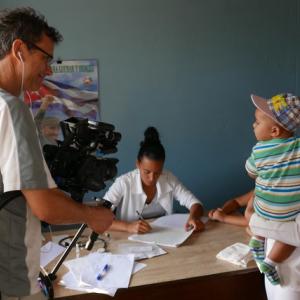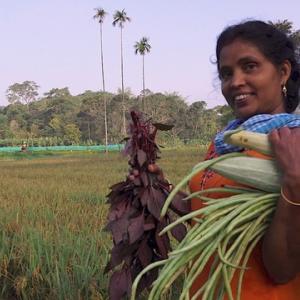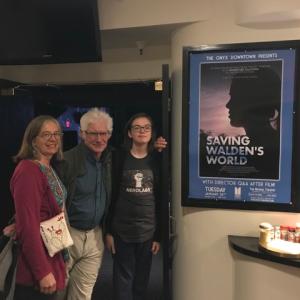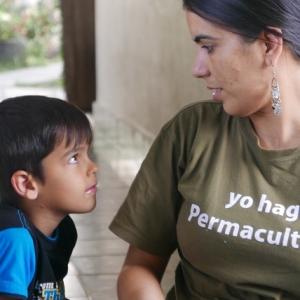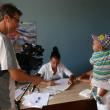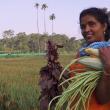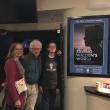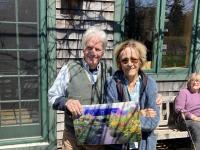CamdenCAN, Camden Public Library to host documentary on women-led global resilience
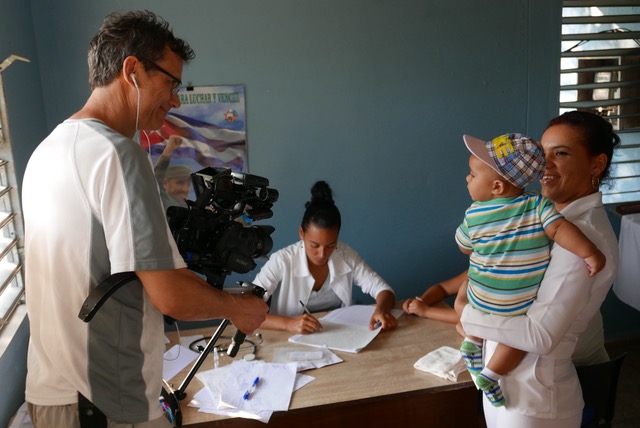 Agroecologist Dr. Leidy Casimiro with her son, Dario, at their permaculture homestead in Medio Cuba. (Photo courtesy Jim Merkel)
Agroecologist Dr. Leidy Casimiro with her son, Dario, at their permaculture homestead in Medio Cuba. (Photo courtesy Jim Merkel)
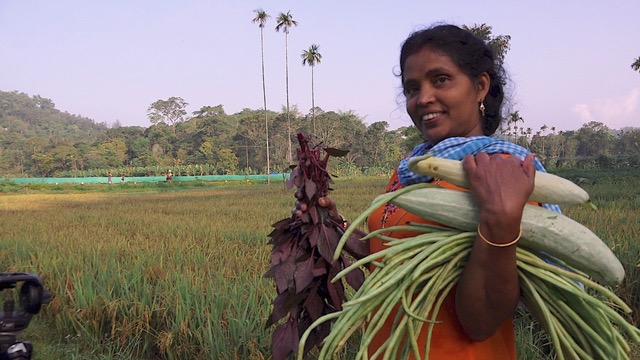 Kudumbashree farmer Sindhu Kumar returns home from harvesting organic produce for lunch and the market. (Photo courtesy Jim Merkel)
Kudumbashree farmer Sindhu Kumar returns home from harvesting organic produce for lunch and the market. (Photo courtesy Jim Merkel)
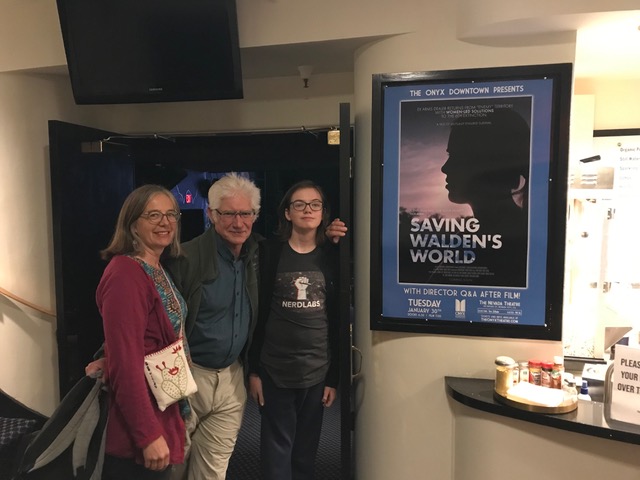 The film's protagonists, Susan Cutting, director Jim Merkel, and the star of the film Walden, pose on opening night at the historic Nevada Theatre in California. (Photo courtesy Jim Merkel)
The film's protagonists, Susan Cutting, director Jim Merkel, and the star of the film Walden, pose on opening night at the historic Nevada Theatre in California. (Photo courtesy Jim Merkel)
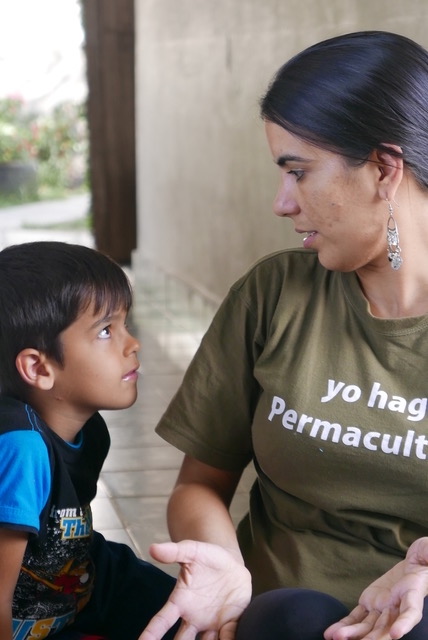 Agroecologist Dr. Leidy Casimiro with her son Dario at their permaculture homestead in Medio Cuba. (Photo courtesy Jim Merkel)
Agroecologist Dr. Leidy Casimiro with her son Dario at their permaculture homestead in Medio Cuba. (Photo courtesy Jim Merkel)
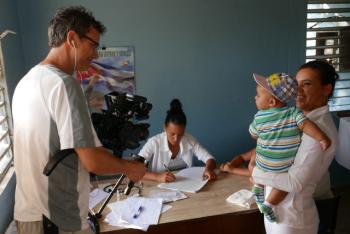 Agroecologist Dr. Leidy Casimiro with her son, Dario, at their permaculture homestead in Medio Cuba. (Photo courtesy Jim Merkel)
Agroecologist Dr. Leidy Casimiro with her son, Dario, at their permaculture homestead in Medio Cuba. (Photo courtesy Jim Merkel)
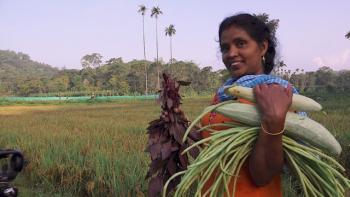 Kudumbashree farmer Sindhu Kumar returns home from harvesting organic produce for lunch and the market. (Photo courtesy Jim Merkel)
Kudumbashree farmer Sindhu Kumar returns home from harvesting organic produce for lunch and the market. (Photo courtesy Jim Merkel)
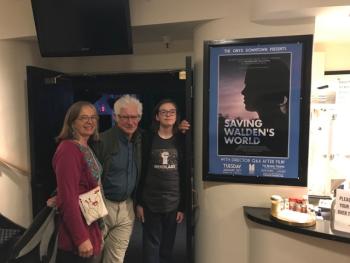 The film's protagonists, Susan Cutting, director Jim Merkel, and the star of the film Walden, pose on opening night at the historic Nevada Theatre in California. (Photo courtesy Jim Merkel)
The film's protagonists, Susan Cutting, director Jim Merkel, and the star of the film Walden, pose on opening night at the historic Nevada Theatre in California. (Photo courtesy Jim Merkel)
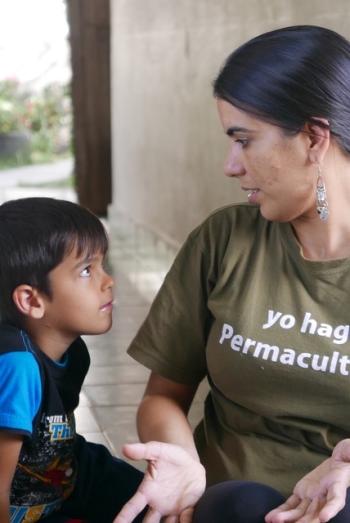 Agroecologist Dr. Leidy Casimiro with her son Dario at their permaculture homestead in Medio Cuba. (Photo courtesy Jim Merkel)
Agroecologist Dr. Leidy Casimiro with her son Dario at their permaculture homestead in Medio Cuba. (Photo courtesy Jim Merkel)
As news headlines report 'Decade of Deadly Heat' the residents of Camden wrestle with creating a sustainable bioregion. It isn’t easy work, but CamdenCAN acts as a hub for action. As part of their monthly series, Camden Talks Climate, they’re hosting the Belfast-based director, Jim Merkel, and his film, Saving Walden’s World.
Fresh off the festival circuit, his film has played around the globe, garnering awards – and it just might have a few insights.
A free screening will be hosted by the Camden Public Library and CamdenCAN on Thursday, February 20, at 6:30 p.m. in the Picker Room at the Camden Public Library, 55 Main Street, Camden. Seesavingwaldensworld.org for more information and to reserve a seat.
The eight-year film project takes viewers to Cuba, Kerala, and Slovenia, places rarely experienced, and often misunderstood.
Director Jim Merkel said, “yeah, we spent a day filming old cars and cigars in Havana, but that was after filming freely across the countryside.”
The film tries to make sense of U.S. covert wars against “communists” in Cuba and Kerala who were initiating agrarian reform and literacy programs to help their poor exit poverty.
In the 1950s, the global south was uniting to be free from colonization and live in a way that didn’t destroy the world. The CIA had other plans, involving brutal violence, some of which are now declassified.
Despite a 60-year embargo, Cubans outperform Americans in child mortality, literacy, and longevity. For Merkel, a former military engineer and arms dealer who struggles with PTSD, the journey becomes increasingly personal as he meets those his work harmed.
In an increasingly polarized world, this film specifically sought out low-income societies that were prioritizing happiness and well-being over material accumulation. The film asks, is there a dividend to ensuring society works for all while taking care of the planet?
In the film we see Merkel pack his tripod and camera gear into a backpack, strap it to a borrowed bicycle, then pedal Slovenia's villages and car-free cities.
He interviews regular people, farmers, feminists, and experts in welfare and degrowth.
Growing up working-class, Merkel’s lens focuses on how, with a fraction of our incomes, society delivers child care, healthcare, free university, and one-year of maternity leave, things America’s working poor can’t imagine. More surprisingly, Slovenia performs better than the USA in crime, child poverty, infant mortality, teen pregnancy rate, and abortion rate, all while maintaining broad unstigmatized reproductive freedoms.
Merkel is now back in Belfast, after screening the completed film at 24 universities and community centers across Kerala, the U.S. and 16 international film festivals, where it garnered nine awards. He now plans to hold hundreds of community screenings internationally before making the film available on potential streaming platforms.
The film began in 2015 as a study, seeking solutions, asking questions, and developing a pattern of research and exploration. During the filmmaking process, a uniting characteristic became apparent — societies prioritizing women’s status also attained a high level of human development. Gender equality led to higher rates of women finishing college and this accelerated poverty reduction while reducing fertility.
Wherever women have access to college and family planning, women prefer fewer yet healthier children. This trend can ease climate change and resource conflicts, but only if overconsumers do their part in reducing excess.
This single cultural orientation of respecting women’s choices while providing opportunities might be the holy grail, the golden nugget. When a 16-year-old girl knows she can achieve her dreams of becoming a doctor, engineer, teacher, or businesswoman, everything inside her changes. She not only defends her fertility by delaying parenting until after college, but she also contributes to society in untold ways. More importantly, she avoids the poverty trap.
As a young woman growing up in Kerala, I had mentors who were completing advanced university-level studies. They had interesting dreams and plans. I grew up believing in the idea of making the world a better place.
I think in Kerala, it is unspoken, yet ingrained in our DNA, to think of others. After college, I left my village to work in the big city. That experience was a wake-up call. Life balance is so important. So now I’m back in my village, near my family, yet working virtually with a film director halfway around the world. It’s pretty exciting.
Often documentaries are edited to have a certain “impact” on viewers, and the world. The team of Emmy Award-winning filmmakers who produced Saving Walden’s World are witnessing at screenings how the film inspires agency.
As institutions that attempted to balance wealth, gender, and racial inequality (notably, rather ineffectively) come into the crosshairs of Project 2025 or other authoritarian actors around the globe, the work of this film becomes even more important.
At this upcoming screening, local Camden-based permaculture educator Joline Blais and composer Anna Dembska will join the film's director Jim Merkel for a Q&A and discussion.
The evening is being presented by CamdenCAN (ClimateActionNow) a citizen-led organization committed to increasing local resilience and regenerating ecosystems through local action, education, advocacy, and resources.
Cuba, Kerala, and Slovenia are in no way utopias, yet they can claim to draw upon the social dividends of three generations of women having had access to higher education, regardless of income, class, or caste. And that, my friends, is life-changing.
What Leaders Are Saying:
"Jim Merkel offers a special mix of practicality and idealism: a workable mix." — Bill McKibben
"As a former engineer working on weapons, his words have a special power." — Howard Zinn
Watch the trailer here and learn more about the film’s impact on global sustainability.
Join the Conversation: Follow the film’s journey on Facebook and Instagram. Sign up for the latest news and upcoming screenings.

